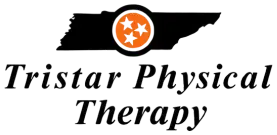Occupational Therapy In East Tennessee
Rediscover Your Independence Through Occupational Therapy in East Tennessee
Has an injury, illness, or disability made it difficult to perform daily activities you used to take for granted? Do problems with mobility, cognition, or mental health impact your ability to fully participate in the things that bring purpose and joy to your life?
You don’t have to continue struggling alone. Occupational therapy provides personalized support and practical solutions to help you rediscover your independence in everyday living. Keep reading to discover how Tristar Physical Therapy’s experienced occupational therapists can be your partners on the path to regaining function, fulfilling meaningful occupations, and enriching your quality of life.
Who Can Benefit From Occupational Therapy?
Occupational therapy empowering men and women aged 18 to 65 in the East Tennessee area who want to:
- Regain independence in self-care, household activities, work, parenting, and leisure pursuits after illness/injury
- Improve safety and prevent falls through home/job modifications and adaptive techniques
- Manage chronic conditions like pain, fatigue, and mental health issues affecting function
- Achieve individualized goals related to disability or changing life circumstances
Maybe you’re recovering from a traumatic accident and need to relearn basic self-care. Perhaps you have a progressive illness like multiple sclerosis and want to maintain independence as your mobility declines. Or you may be struggling with the demands of work and family while coping with anxiety, depression, or chronic pain.
What Is Occupational Therapy? Your Personalized Path to Everyday Living
Occupational therapy is goal-oriented support focused on enabling you to perform, or “occupy”, yourself in the meaningful activities of daily life — everything from personal care to household responsibilities, to socializing, work, education, and leisure. It takes a holistic, client-centered approach addressing physical, cognitive, and mental health factors to help you achieve your highest level of independence and satisfaction.
Rather than focusing narrowly on injury, disease, or specific body function, occupational therapy considers the whole person and how various challenges may impact your ability to fulfill valued daily “occupations”. The therapist then partners with you to set personalized priorities and functional goals. Customized interventions build capacities in areas like mobility, strength, coordination, memory, organization, coping skills, environmental adaptations, and assistive equipment. The goal is for you to participate as fully as possible in your chosen occupations and environments in order to live life to the fullest according to your individual meaning, purpose, needs, and choices.
Occupational therapy is provided in various settings including hospitals, rehab centers, outpatient clinics, community programs, schools, workplace wellness programs, assisted living facilities, and private homes.
Benefits of Occupational Therapy in East Tennessee
Occupational therapy offers many benefits for adults in the East Tennessee area including:
1. Increased Independence and Participation
The primary focus is building capacities and removing barriers so you can perform daily self-care, household, work, parenting, education, social, and leisure activities as independently as possible. This boosts confidence and life satisfaction.
2. Improved Safety and Function
OTs promote safety through the provision of adaptive techniques and equipment and by identifying environmental modifications. This prevents injuries from falls and overexertion while ensuring you can function optimally at home, work, and school.
3. Enhanced Coping Skills and Emotional Health
Coping with pain, fatigue, and mental health barriers can be addressed through tailoring activities, building stress management skills, and establishing healthy routines and social connections. This alleviates secondary conditions impacting function.
4. Personalized Support for Specific Needs
Because occupational therapy is customized to each client’s values, challenges, and environments, it can benefit people with varying diagnoses and disabilities including:
- Physical conditions: arthritis, injury, stroke, cardiac, pulmonary, neurological, spinal cord
- Cognitive conditions: dementia, developmental delays, autism
- Mental health: PTSD, anxiety, depression, addiction
- Changing life stages: aging in place, adjusting after vision/hearing loss
The focus is not the medical condition itself, but on overcoming functional barriers to participate fully in meaningful daily activities.
Occupational Therapy FAQs
If you’re interested in exploring occupational therapy, you likely have some questions. Here are answers to some frequently asked questions:
What is the main role of occupational therapy?
The main role is to enable people to regain, develop, or maintain functional independence in valued daily occupations when impacted by injury, illness, disability, or changing circumstances. The OT provides adaptive techniques, equipment, and environment modifications and builds capacities targeting areas like mobility, cognition, routine development, emotional regulation, and social skills.
What is the difference between occupational therapy (OT) and physical therapy (PT)?
While OT and PT therapies often complement each other, key differences include:
- Focus: OT focuses on performing meaningful daily activities in natural contexts vs PT focuses more narrowly on improving specific mobility functions and strength.
- Goals: OT goals relate to independence and participation vs PT rehab goals.
- Approach: OT takes a more holistic approach considering environmental, social, cognitive, and psychological factors.
What is the highest-paying field in occupational therapy?
The highest salary potentials exist in roles treating infants in neonatal intensive care units, providing rehabilitation after catastrophic injuries, and delivering therapy services in home health settings. Geographic location also impacts salaries significantly.
What are some examples of occupational therapy?
Depending on client needs and priorities, examples may include:
- Teaching adapted dressing, feeding, hygiene, cooking techniques
- Prescribing assistive equipment like reachers, wheelchairs, hearing aids
- Assessing home hazards and recommending modifications like grab bars
- Building skills in time management, organization, and planning complex tasks
- Collaborating with teachers supporting students’ learning challenges
- Training clients in art or music therapy for leisure enjoyment and emotional health
Your Occupational Therapy Team in East Tennessee
Tristar Physical Therapy’s skilled Physical Therapist leverage years of experience combined with the latest evidence-based approaches. They take time to get to know you, your environments, interests, and challenges to create effective interventions tailored to what matters most.
Next Steps
Are you ready to take charge of your independence and participation in meaningful daily activities? Tristar Physical Therapy is committed to helping you achieve your functional goals while living life to the fullest. To get started, contact us to ask questions and schedule a consultation. Our experienced occupational therapists look forward to partnering with you on your journey toward confidence, independence, and joyful living!



